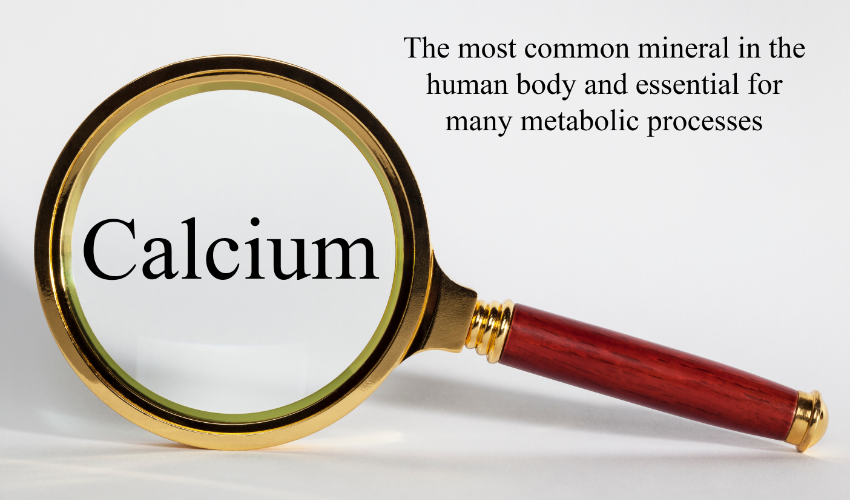Calcium is one of the most important minerals for your health, playing a critical role in building and maintaining strong bones and teeth. But calcium does more than just keep your skeleton healthy. It also helps your muscles contract and your nerves transmit messages. In fact, calcium is essential for almost every bodily function.
While many people think of milk and other dairy products as the primary source of calcium, there are many other foods that are rich in this vital mineral. In this article, we’ll explore the importance of calcium for your overall health, how much you need, and how to ensure you are getting enough through your diet and supplements.
What is Calcium and Why is it Important for Your Health?
Calcium is a mineral that is essential for many bodily functions, including:
- Building and maintaining strong bones and teeth
- Muscle movement and contraction
- Nerve function
- Blood clotting
Calcium is especially important for children and adolescents, whose bones are still growing, as well as for older adults, who are at greater risk for osteoporosis.
How Much Calcium Do You Need?
The amount of calcium you need depends on your age, sex, and other factors such as pregnancy and breastfeeding. The National Institutes of Health recommends the following daily intake of calcium:
- Children ages 1-3: 700 mg
- Children ages 4-8: 1,000 mg
- Children ages 9-13: 1,300 mg
- Adolescents ages 14-18: 1,300 mg
- Adults ages 19-50: 1,000 mg
- Women over 50 and men over 70: 1,200 mg
- Pregnant and breastfeeding women: 1,000-1,300 mg
Calcium Sources: Dairy Products
Dairy products are a great source of calcium, with one cup of milk containing about 300 mg. Here are some other calcium-rich dairy products:
- Yogurt
- Cheese
- Buttermilk
- Kefir
Non-Dairy Sources of Calcium
If you are lactose intolerant or vegan, you might be wondering if you can get enough calcium from non-dairy sources. The answer is yes. Here are some non-dairy sources of calcium:
- Leafy greens: kale, collard greens, spinach, and bok choy
- Soybeans and tofu
- Almonds
- Chia seeds
- Broccoli
- Fortified breakfast cereals
- Fortified orange juice
Calcium Supplements
If you are not getting enough calcium from your diet, you might need to take calcium supplements. Calcium supplements come in different forms, such as calcium carbonate and calcium citrate. It is important to talk to your doctor before starting any new supplements, as taking too much calcium can lead to health problems.
FAQs
Can too much calcium be harmful?
Yes, taking too much calcium can lead to health problems such as kidney stones and constipation. It is important to stick to the recommended daily intake and talk to your doctor before taking any new supplements.
Is it better to get calcium from food or supplements?
It is best to get calcium from your diet whenever possible, as it is easier for your body to absorb. However, if you are not getting enough calcium from your diet, supplements can be helpful.
What are the symptoms of calcium deficiency?
Calcium deficiency can cause a variety of symptoms, including muscle cramps, weakness, and twitching, as well as osteoporosis and other bone-related conditions.
Can calcium supplements interfere with other medications?
Yes, calcium supplements can interfere with certain medications, including antibiotics and thyroid medications. It is important to talk to your doctor before starting any new supplements if you are taking medications.
Are there any foods that can inhibit calcium absorption?
Yes, certain foods can inhibit calcium absorption, including spinach, rhubarb, and Swiss chard. It is important to balance your diet with a variety of foods to ensure proper absorption of calcium.
Conclusion
Calcium is a vital mineral for your health, playing a critical role in almost every bodily function. While dairy products are a great source of calcium, there are many other foods that are rich in this mineral, as well as supplements available if needed. By ensuring you are getting enough calcium, you can help build and maintain strong bones and teeth, support muscle movement and nerve function, and promote overall health and well-being.
























